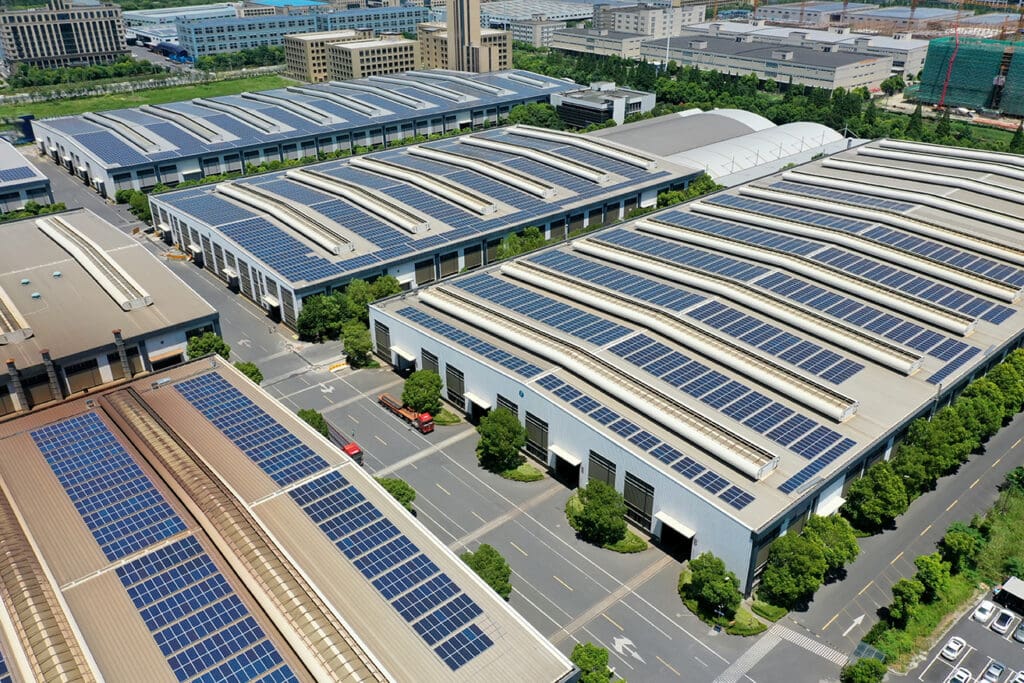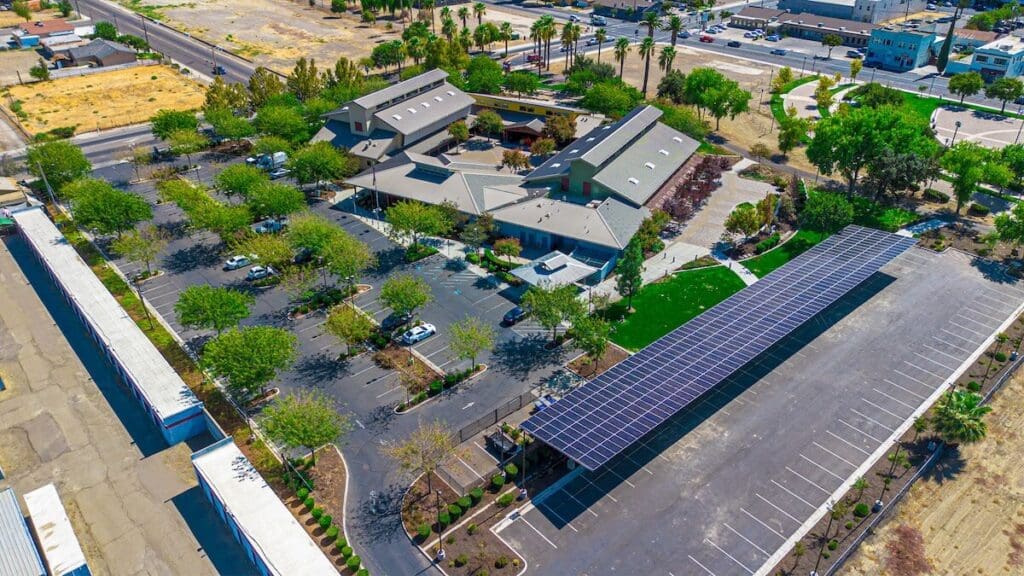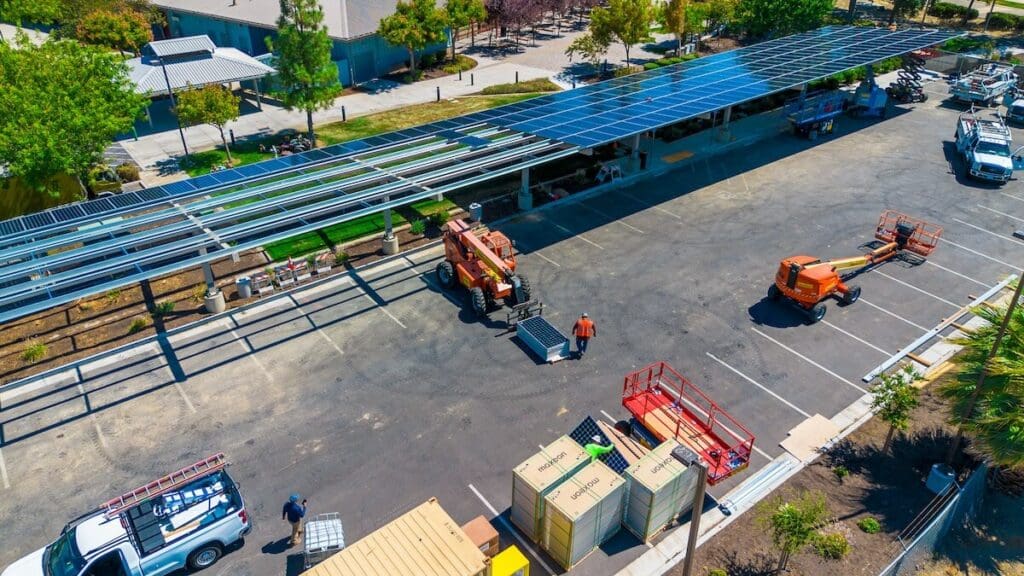Solar + Battery
Solar + battery for business
Explore resources to determine if solar and battery storage are the right fit for your business—helping you manage energy costs, improve resilience, and maximize benefits based on your unique needs.


Overview
Explore the potential of solar and battery storage
Is solar and storage the right investment for your business?
Installing solar and battery storage can be a smart strategy to manage energy costs and improve resilience against power outages. However, the economic benefits depend on factors specific to your business, including your energy usage patterns, rate schedule, and site characteristics.
Before making the decision to invest, it’s important to evaluate whether your site and energy load profile make solar and battery storage a good fit. If the cost-benefit aligns, the potential advantages include lower operating costs, increased reliability, and contributions to a cleaner energy future – something you can proudly share with your employees and customers.
Key Considerations:
- Solar offsets energy usage: Sizing a solar array depends on your historical annual and hourly energy charges. Is your energy use consistent with the potential for significant offset through solar?
- Battery storage shifts usage: Sizing a battery system depends on how much energy you use during the day versus during the evening. Could a battery help you avoid high “peak” energy charges by shifting your usage to off-peak times?
- Economic value: Does your energy rate structure, the cost of installation (or financing), and available incentives at federal, state, or local levels make solar + storage a financially viable option for your business?
- Site readiness: Is there adequate space for solar panels, and does your roof (or mounting area) meet structural and orientation requirements for optimal solar production?

Making the Right Decision:
Business Benefits of Solar + Battery
Why solar + battery?
Explore the economic benefits for your business
Better rates
Tax incentives
- Investment Tax Credit (ITC): A 30% tax credit applied to the total cost of solar system installation.
- MACRS Depreciation: Allows a 5-year depreciation schedule for solar installations, helping to accelerate tax benefits.
Reliable operations during outages
EV charging advantages
Solar + Battery FAQs
Your solar + battery questions, answered
No. We don’t install or maintain solar panels or battery storage, but we will connect you with local professionals who do. Plus, we offer free technical support to help you ensure installation is done correctly.
Please check out our available programs to find which that suit your needs.
Note: Programs and incentives change throughout the year, so we also suggest subscribing to our newsletter to make sure you get the latest rebate and other energy information.
It depends on the structure. You may need an architect and, at times, a structural engineer to perform a thorough assessment during the design process to confirm whether additional support is required.
Professional installers can install solar panels on practically any building in California. We can help to make sure the solar panels you choose are well-suited for commercial, industrial, retail, and agricultural structures.
We can confidently say that you will save money if you invest in solar. The amount you save will depend on many factors, including the size of your building and the amount of sun it gets. Contact our team today, and we’ll help you estimate your savings.
Yes. Dirty solar panels can reduce energy production by up to 35%. Schedule annual care with our team to maximize the return on your investment.
We recommend scheduling preventative care for your solar panels at least once a year.
With routine, professional maintenance and prompt repair when necessary, your commercial solar panels will last 25 to 30 years.
There are several types of batteries commonly used in commercial solar power systems, each with its own advantages and disadvantages. The most popular options include lithium-ion, lead-acid, and flow batteries. Lithium-ion batteries are known for their long lifespan, high energy density, and low maintenance requirements. Lead-acid batteries are more affordable, but they have a shorter lifespan and require regular maintenance. Flow batteries involve a newer technology that offers high storage capacity and deep discharge capabilities.
The lifespan of your batteries will depend on factors such as the type of batteries you choose, how frequently you use them, and how well they are maintained. Lithium-ion batteries typically have a lifespan of 10-15 years, while lead-acid batteries may last for 5-7 years. Flow batteries involve technology that is still relatively new, but they are expected to have a lifespan of 20 years or more.
Newsletter
Keeping up with PCE
Would you like to stay informed about PCE’s efforts to bring clean, affordable electricity to your home?


